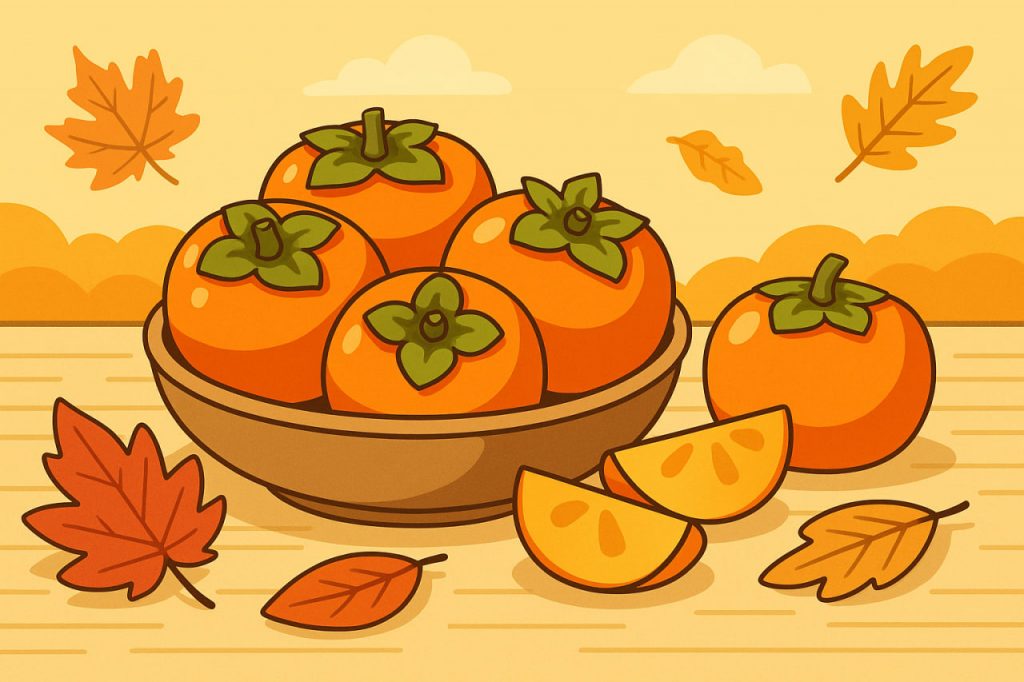Persimmon is a bright orange fruit that ripens in autumn and is often referred to as an autumn superfood. It is rich in vitamins, minerals, and plant compounds, making it not only delicious but also highly beneficial for health.
Nutritional Value
Persimmons are packed with vitamin A, vitamin C, and vitamin E, along with potassium, manganese, and dietary fiber. They are also rich in antioxidants like carotenoids and flavonoids, which protect the body from oxidative stress and strengthen immunity during the cold season.
Benefits for Health
- Immune support: Vitamin C helps the body resist seasonal colds.
- Eye health: Vitamin A and carotenoids protect vision.
- Heart health: Fiber and antioxidants lower cholesterol and improve blood circulation.
- Digestion: Dietary fiber promotes healthy gut function.
- Energy: Natural sugars provide a quick energy boost, useful in cooler months.
Different Varieties
There are two main types of persimmon: astringent (such as Hachiya), which must ripen fully to become sweet and soft, and non-astringent (such as Fuyu), which can be eaten while firm, offering a crisp texture.
Culinary Uses
Persimmons can be eaten fresh, dried, or cooked. They are often used in salads, desserts, jams, and smoothies. Dried persimmon is a popular seasonal treat in many cultures.
Precautions
While persimmons are healthy, eating too many astringent varieties before they ripen can cause digestive discomfort. Moderation is recommended, especially for people with diabetes, as persimmons contain natural sugars.
Conclusion
Persimmon is not only a symbol of autumn but also a true superfood, providing valuable nutrients and supporting health during colder months. Adding it to the diet is a tasty and natural way to strengthen the body.
Interesting Facts
Persimmons are often called the “fruit of the gods”, a nickname derived from their scientific name Diospyros, meaning “divine fruit.” These bright orange fruits are packed with vitamin A, vitamin C, and powerful antioxidants like beta-carotene and catechins, which help protect cells from oxidative stress. Interestingly, persimmons contain tannins, natural compounds that give unripe fruits their characteristic astringent taste but also have anti-inflammatory and antiviral properties. One medium persimmon provides nearly half of the recommended daily intake of vitamin A, essential for eye and skin health. In Japan and Korea, persimmons are traditionally dried into sweet treats called hoshigaki, prized for their chewy texture and rich flavor. Despite their sweetness, they have a low fat content and moderate glycemic index, making them a healthy choice for autumn nutrition.
Glossary
- Superfood – a nutrient-rich food considered especially beneficial for health.
- Antioxidants – compounds that protect the body from oxidative stress.
- Carotenoids – pigments in plants with antioxidant properties.
- Fiber – plant component that supports digestion.
- Astringent – taste that causes a dry or puckering sensation.
- Oxidative stress – damage to cells caused by free radicals.


